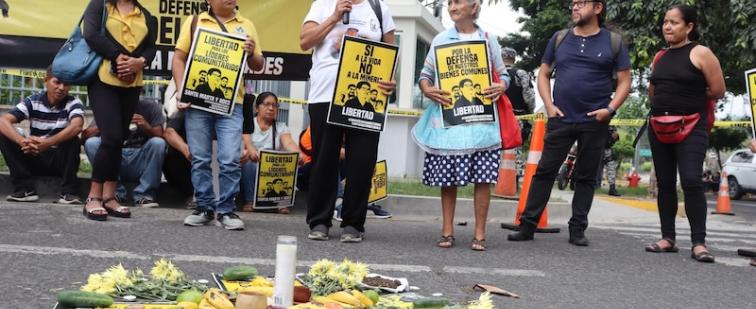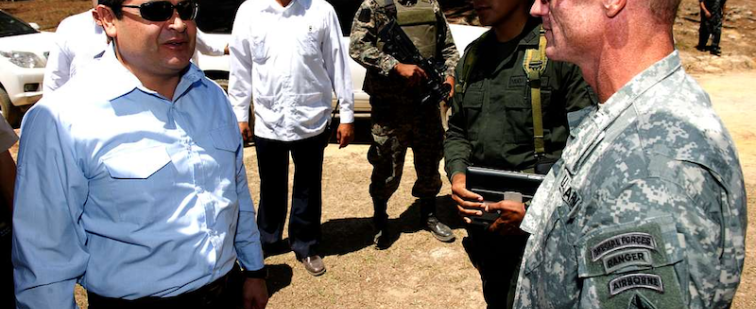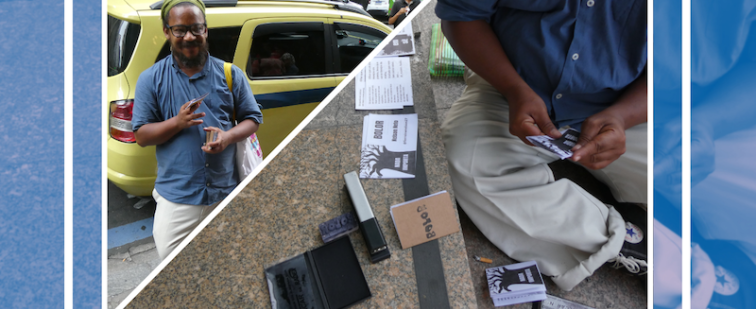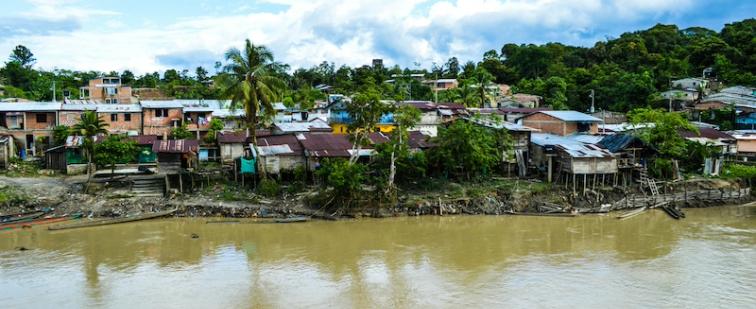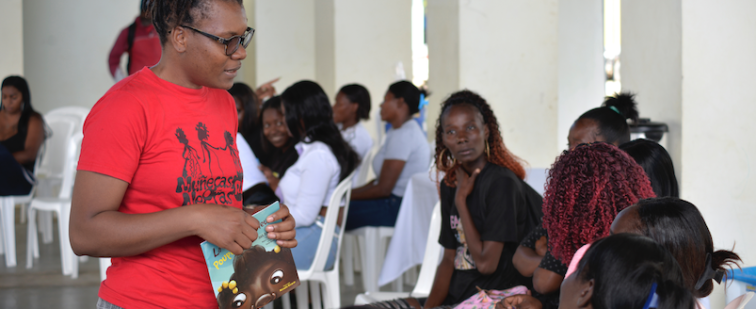Home
NACLA-CLACS Student Blog
December 24, 2013
Evo Morales’s 2005 election brought an end to a long period of U.S.-Bolivia relations. Since at least 1952, the United States held Bolivia under its sway as a client state. Although it is important to acknowledge Morales’s push-back against U.S. imperialism, other forms of imperialism loom large.
NACLA-Global Voices
December 24, 2013
Despite the low salaries and the dangers that come with being a reporter in one of the most dangerous countries for journalists in the Americas, some Mexican female journalists continue working and thriving in the profession. In this post, we introduce you to four of these brave female journalists.
Border Wars
December 23, 2013
While southern Arizona continues to be ground zero for the most extreme measures of border militarization today, it is also home to powerful nodes of civil resistance. On December 8, local residents from Arivaca and the surrounding area held their first protest at a Border Patrol checkpoint—one out of about a dozen located throughout the region. I documented the event in the video posted below.
Rebel Currents
December 21, 2013
Newly-annointed President Juan Orlando Hernández is gearing up to lead the most authoritarian administration in Honduran history, under the cloud of a tainted election, a violence-plagued society, and a failed economy. Can Honduran social movements curtail the abuses of the regime through the combined efforts of a viable political opposition party and massive popular resistance?
Mexico, Bewildered and Contested
December 18, 2013
In a move that appears to complete Mexico’s loss of national sovereignty to international capital, the senate has finally passed a sweeping and far-reaching reform of the country’s oil industry. The restructuring is treated with widespread skepticism—polls suggest that about 65-75 percent of the population oppose the initiative.
NACLA-Global Voices
December 17, 2013
In the first part of our dialog about the work of artist, blogger, and scholar Coral Herrera, we discussed the opportunities presented by new technology for gender equality and the social struggle for the rights of women and LGBT persons. This time we will enter into a discussion about the struggle for gender equality in Latin America.
Extractives in Latin America
December 16, 2013
In a mining conflict country, police brutality under the pay of mining corporations is the ugliest side of community relations. With financial and logistical support from the corporations, the police find incentives to use force. What would Servando Huanca, Vallejo's anti-miner in El tungsteno (1931), have done about it?
Red Hot Burning Peace
December 13, 2013
The modification and certification of seeds has put Colombian campesinos up against giant multinationals, creeping international "protection" laws, the U.S. Free Trade Agreement, and their own government. On December 3, Colombian farmers returned to the streets.
Mexico, Bewildered and Contested
December 12, 2013
Following Mexico’s “transition to democracy” in 2000, many of the old systems of political and judicial control which the one-party state had at its disposal were dismantled, leaving a power vacuum that was filled by both legal and illegal capital. This process did not replace the older structures and failed to bolster democratic institutions, allowing for the most ruthless and merciless capitalist institutions to rise to the top.
NACLA-Global Voices
December 12, 2013
Coral Herrera's writings analyze structural problems in Western societies and the discomfort that arises in the intimate lives of men and women. Her work conducts a deconstructive critique of the causes and consequences of societal norms and the imaginaries that we defend without knowing why.


